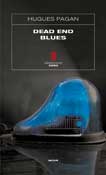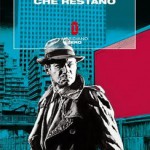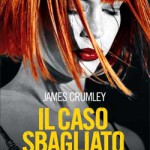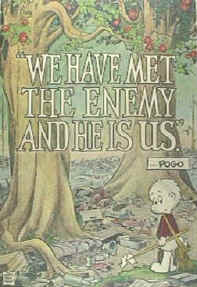 This summer’s readings have been quite good, at least until now. Hugues Pagan‘s set of three stories, of which I’ve read the first two ones until now, has revealed as being rather intriguing. I’ve never been a fan of french stuff, perhaps excluding women, but Pagan is originally from Algeria so maybe this explains why his corrupted and decadent parisienne atmosphere sounds fine to me.
This summer’s readings have been quite good, at least until now. Hugues Pagan‘s set of three stories, of which I’ve read the first two ones until now, has revealed as being rather intriguing. I’ve never been a fan of french stuff, perhaps excluding women, but Pagan is originally from Algeria so maybe this explains why his corrupted and decadent parisienne atmosphere sounds fine to me.
I’ve read some other reader’s comments saying that the main character in these books talks too much bullshit, and actually there’s a lot of talking to self, in a dark, negative, disenchanted tone, but this kind of “bullshit” is what defines the black novels in my opinion.
 None of the characters is innocent, not at all. Hush-money cops, or just worthless. Whores, plenty of whores. Thieves, drug dealers, various criminals. This is the world the books describe, and nobody is clean or innocent, not even the main character. Victims aren’t anything great either: everything is around the assassination of a whore (“Dead End Blues” in the italian edition, there’s no english translation of these novels yet, as far as I know), and of Chess’ best friend – Chess is Pagan’s main character – who was a hush-money cop and was planning a trick related to drugs market (“Tarif de groupe/Quelli che restano“). But this doesn’t mean they don’t express humanity, deep feelings or merit. In the end, no one in the world is innocent, not even children.
None of the characters is innocent, not at all. Hush-money cops, or just worthless. Whores, plenty of whores. Thieves, drug dealers, various criminals. This is the world the books describe, and nobody is clean or innocent, not even the main character. Victims aren’t anything great either: everything is around the assassination of a whore (“Dead End Blues” in the italian edition, there’s no english translation of these novels yet, as far as I know), and of Chess’ best friend – Chess is Pagan’s main character – who was a hush-money cop and was planning a trick related to drugs market (“Tarif de groupe/Quelli che restano“). But this doesn’t mean they don’t express humanity, deep feelings or merit. In the end, no one in the world is innocent, not even children.
Chess loves blues and jazz. He often cites Billie Holiday (his fav), Louis Armstrong, Duke Ellington and others, also naming suites and performances. I’ve never been into jazz and blues, I’ve always respected them from a distance, but I’ve tried to listen to some of the suites named in these books, and I can’t say I haven’t liked them.
 Then comes James Crumley. The Wrong Case is amazing. It’s been written before The Last Good Kiss, his most celebrated novel, but it’s really cool. It comes out of the same cauldron: alcohol and selfdestruction. C. W. Sighrue in The LGK is perhaps more cinic and abrasive, while Milo Milodragovitch is probably less unemotional and more bound to his friends and to love, but they express the same power. The locations where these novels take place are so surreal in their wretched simplicity. Dives, poorly mantained houses where drunkards live, a world shining in its decrepit wretch. And also here no one is innocent.
Then comes James Crumley. The Wrong Case is amazing. It’s been written before The Last Good Kiss, his most celebrated novel, but it’s really cool. It comes out of the same cauldron: alcohol and selfdestruction. C. W. Sighrue in The LGK is perhaps more cinic and abrasive, while Milo Milodragovitch is probably less unemotional and more bound to his friends and to love, but they express the same power. The locations where these novels take place are so surreal in their wretched simplicity. Dives, poorly mantained houses where drunkards live, a world shining in its decrepit wretch. And also here no one is innocent.
Like this:
Like Loading...


 This summer’s readings have been quite good, at least until now. Hugues Pagan‘s set of three stories, of which I’ve read the first two ones until now, has revealed as being rather intriguing. I’ve never been a fan of french stuff, perhaps excluding women, but Pagan is originally from Algeria so maybe this explains why his corrupted and decadent parisienne atmosphere sounds fine to me.
This summer’s readings have been quite good, at least until now. Hugues Pagan‘s set of three stories, of which I’ve read the first two ones until now, has revealed as being rather intriguing. I’ve never been a fan of french stuff, perhaps excluding women, but Pagan is originally from Algeria so maybe this explains why his corrupted and decadent parisienne atmosphere sounds fine to me. None of the characters is innocent, not at all. Hush-money cops, or just worthless. Whores, plenty of whores. Thieves, drug dealers, various criminals. This is the world the books describe, and nobody is clean or innocent, not even the main character. Victims aren’t anything great either: everything is around the assassination of a whore (“Dead End Blues” in the italian edition, there’s no english translation of these novels yet, as far as I know), and of Chess’ best friend – Chess is Pagan’s main character – who was a hush-money cop and was planning a trick related to drugs market (“Tarif de groupe/Quelli che restano“). But this doesn’t mean they don’t express humanity, deep feelings or merit. In the end, no one in the world is innocent, not even children.
None of the characters is innocent, not at all. Hush-money cops, or just worthless. Whores, plenty of whores. Thieves, drug dealers, various criminals. This is the world the books describe, and nobody is clean or innocent, not even the main character. Victims aren’t anything great either: everything is around the assassination of a whore (“Dead End Blues” in the italian edition, there’s no english translation of these novels yet, as far as I know), and of Chess’ best friend – Chess is Pagan’s main character – who was a hush-money cop and was planning a trick related to drugs market (“Tarif de groupe/Quelli che restano“). But this doesn’t mean they don’t express humanity, deep feelings or merit. In the end, no one in the world is innocent, not even children. Then comes James Crumley. The Wrong Case is amazing. It’s been written before The Last Good Kiss, his most celebrated novel, but it’s really cool. It comes out of the same cauldron: alcohol and selfdestruction. C. W. Sighrue in The LGK is perhaps more cinic and abrasive, while Milo Milodragovitch is probably less unemotional and more bound to his friends and to love, but they express the same power. The locations where these novels take place are so surreal in their wretched simplicity. Dives, poorly mantained houses where drunkards live, a world shining in its decrepit wretch. And also here no one is innocent.
Then comes James Crumley. The Wrong Case is amazing. It’s been written before The Last Good Kiss, his most celebrated novel, but it’s really cool. It comes out of the same cauldron: alcohol and selfdestruction. C. W. Sighrue in The LGK is perhaps more cinic and abrasive, while Milo Milodragovitch is probably less unemotional and more bound to his friends and to love, but they express the same power. The locations where these novels take place are so surreal in their wretched simplicity. Dives, poorly mantained houses where drunkards live, a world shining in its decrepit wretch. And also here no one is innocent.


